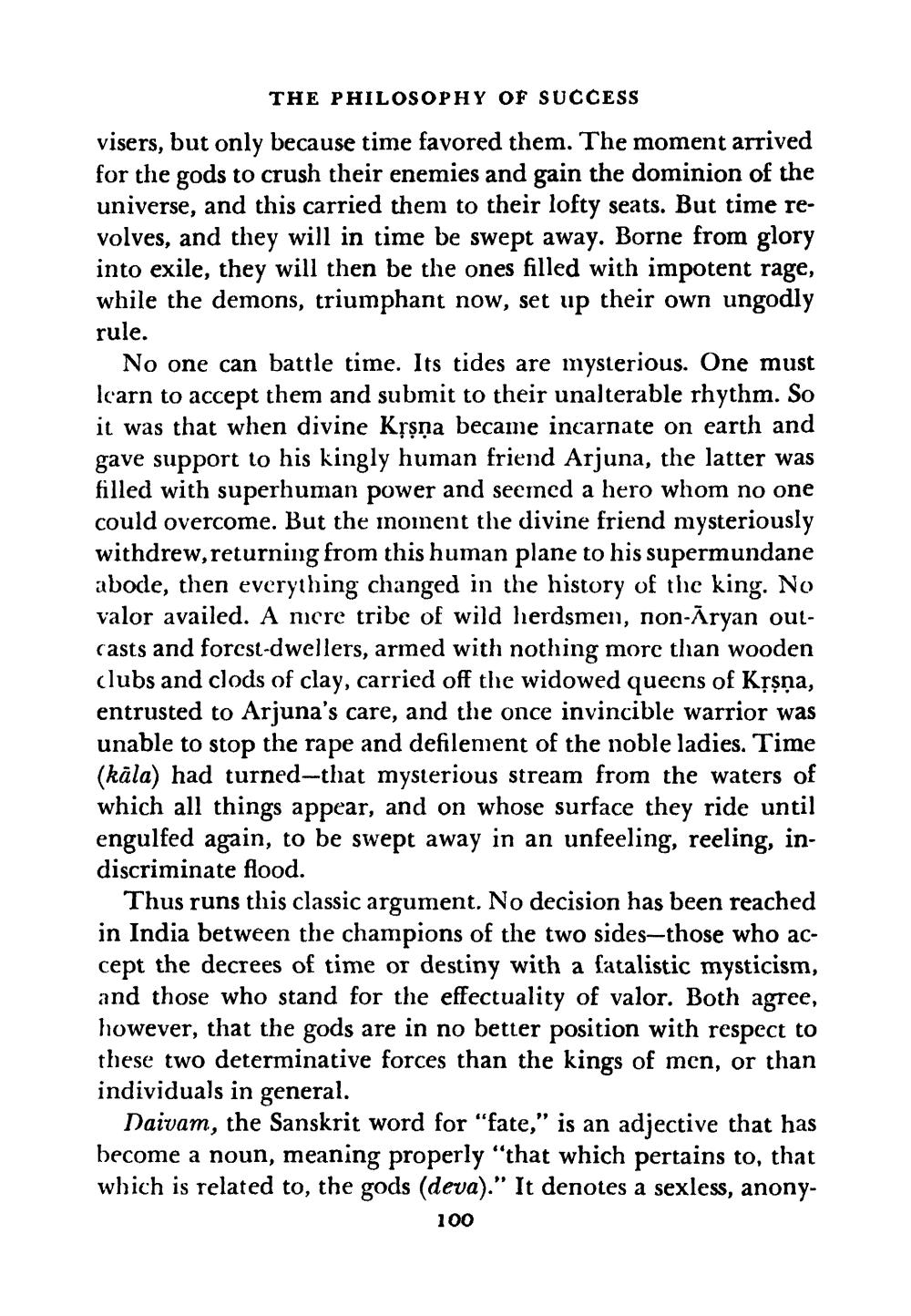________________
THE PHILOSOPHY OF SUCCESS
visers, but only because time favored them. The moment arrived for the gods to crush their enemies and gain the dominion of the universe, and this carried them to their lofty seats. But time revolves, and they will in time be swept away. Borne from glory into exile, they will then be the ones filled with impotent rage, while the demons, triumphant now, set up their own ungodly rule.
No one can battle time. Its tides are mysterious. One must learn to accept them and submit to their unalterable rhythm. So it was that when divine Kṛṣṇa became incarnate on earth and gave support to his kingly human friend Arjuna, the latter was filled with superhuman power and seemed a hero whom no one could overcome. But the moment the divine friend mysteriously withdrew, returning from this human plane to his supermundane abode, then everything changed in the history of the king. No valor availed. A mere tribe of wild herdsmen, non-Aryan outcasts and forest-dwellers, armed with nothing more than wooden clubs and clods of clay, carried off the widowed queens of Kṛṣṇa, entrusted to Arjuna's care, and the once invincible warrior was unable to stop the rape and defilement of the noble ladies. Time (kāla) had turned-that mysterious stream from the waters of which all things appear, and on whose surface they ride until engulfed again, to be swept away in an unfeeling, reeling, indiscriminate flood.
Thus runs this classic argument. No decision has been reached in India between the champions of the two sides-those who accept the decrees of time or destiny with a fatalistic mysticism, and those who stand for the effectuality of valor. Both agree, however, that the gods are in no better position with respect to these two determinative forces than the kings of men, or than individuals in general.
Daivam, the Sanskrit word for "fate," is an adjective that has become a noun, meaning properly "that which pertains to, that which is related to, the gods (deva)." It denotes a sexless, anony
100




